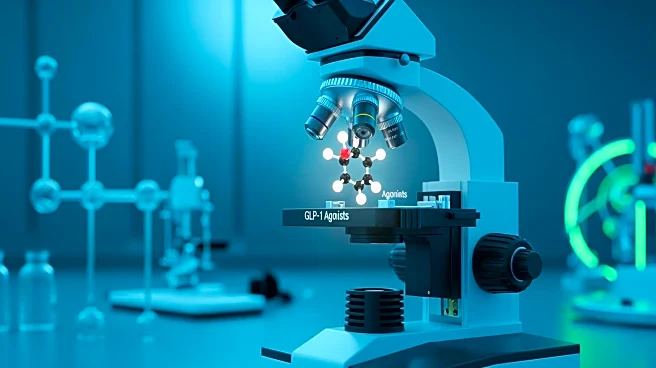What's Happening?
Researchers at the University of Utah have discovered a new method involving radical enzymes that could lead to the development of a new generation of GLP-1 agonists, potentially transforming anti-obesity
drug treatments. The study focuses on using radical enzymes to 'tie off' therapeutic peptides into compact rings, enhancing their effectiveness. This process, known as macrocyclization, can improve drug durability, tissue targeting, and signal bias. The research team demonstrated that the enzymatic process can create a C-terminal ring, which may enhance receptor affinity, block proteases, and allow for longer half-life and selective activity. This discovery could lead to more targeted versions of popular drugs like Ozempic.
Why It's Important?
The research conducted by the University of Utah represents a significant advancement in the field of anti-obesity treatments. By improving the effectiveness and targeting of GLP-1 agonists, this discovery could lead to more efficient and durable therapies for obesity and diabetes management. The ability to enhance receptor affinity and block proteases may result in drugs with longer-lasting effects and fewer side effects, benefiting patients and healthcare providers. This development could also stimulate further research and innovation in peptide-based therapeutics, potentially leading to new treatment options for various diseases.
Beyond the Headlines
The implications of this research extend beyond immediate drug development. The enzymatic process described could pave the way for broader applications in peptide drug design, offering a versatile tool for creating more effective and targeted therapies. The ability to design modular 'handles' for engaging albumin, transporters, or disease-related receptors could revolutionize how drugs are developed and administered, leading to personalized medicine approaches. Additionally, this research highlights the importance of interdisciplinary collaboration in advancing scientific discoveries, combining expertise in enzymology, peptide chemistry, and pharmacology.









